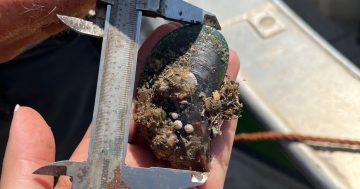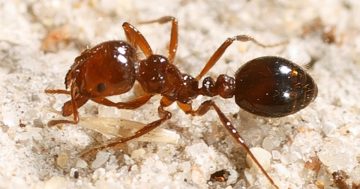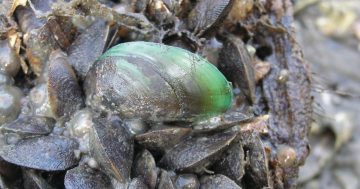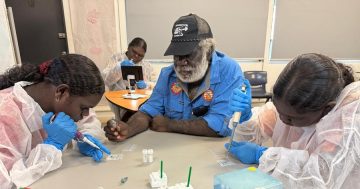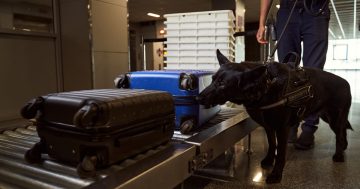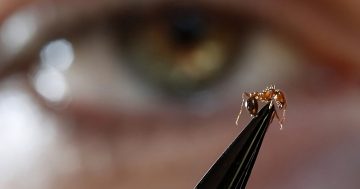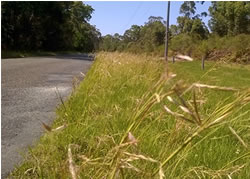 A quick response from the Territory’s new Biosecurity Emergency Response Team has seen a dangerous imported grass prevented from taking a hold in the ACT.
A quick response from the Territory’s new Biosecurity Emergency Response Team has seen a dangerous imported grass prevented from taking a hold in the ACT.
Executive Director, Environment in the Environment, Planning and Sustainable Development Directorate, Ian Walker said Coolatai Grass, which is native to South Africa, was spotted by a Parks and Conservation ranger along the Cotter Road near Duffy.
“This is a very high-risk species that quickly dominates pastures and native grasslands and has destroyed large areas of native grasslands in the NSW Northern Tablelands,” Mr Walker said.
“Thanks to this early detection from a proactive ranger and a rapid response from our Biosecurity Emergency Response Team, we have prevented this damaging invader establishing itself in the ACT and stopped what could have been a long-term biosecurity battle.”
He said the infestation was removed and destroyed within hours of the detection. A thorough search of the surrounding area confirmed there were no other infestations nearby.
“Coolatai Grass is particularly nasty as it resists burning, slashing and herbicides and can out-compete other invasive weeds such as African Lovegrass,” Mr Walker said.
“Biosecurity is everyone’s responsibility so we encourage anyone who suspects a grass of being invasive to report it.”
He said experts would quickly check the report and if it was invasive the Biosecurity Emergency Response Team would immediately jump into action to control it.
“The team was set up under a new approach of ‘early detection and rapid response’, which not only prevents invasive grass becoming established but saves money by avoiding the costs of dealing with a bigger invasion further down the track,” Mr Walker said.
“ACT Parks and Conservation staff, working with colleagues in Transport Canberra and City Services, have all undergone rapid response training and are deployed when there is a new incursion of a high-risk invasive species like Coolatai Grass or cane toads.”


